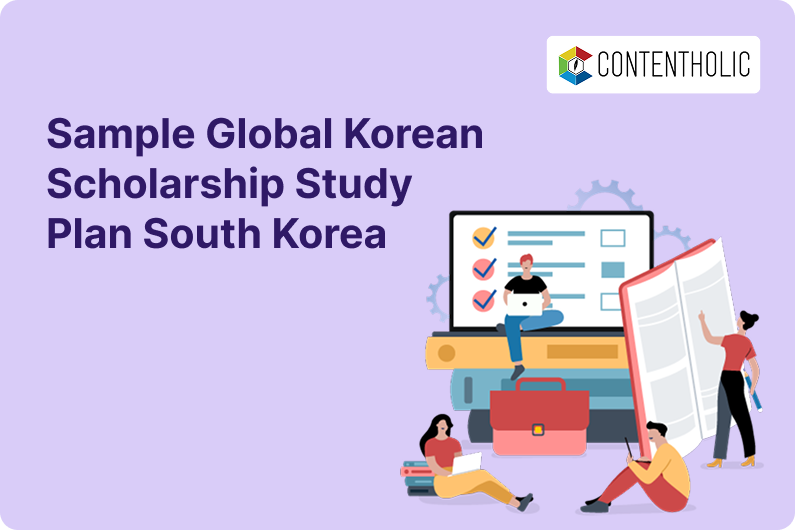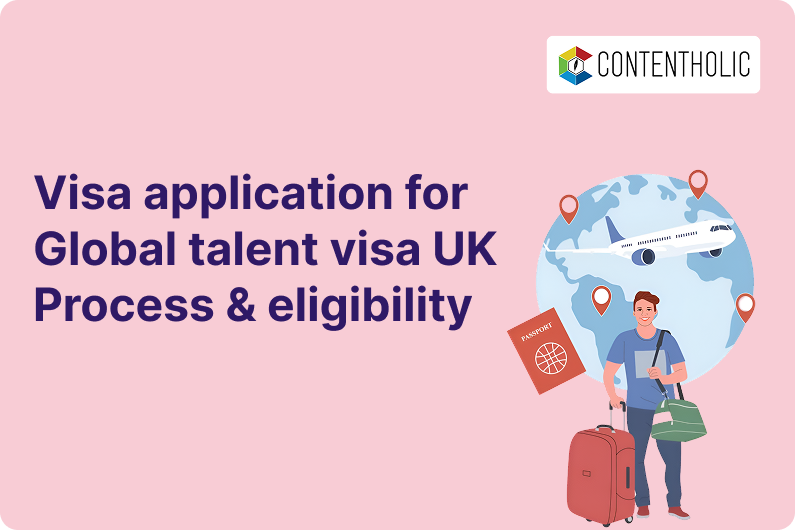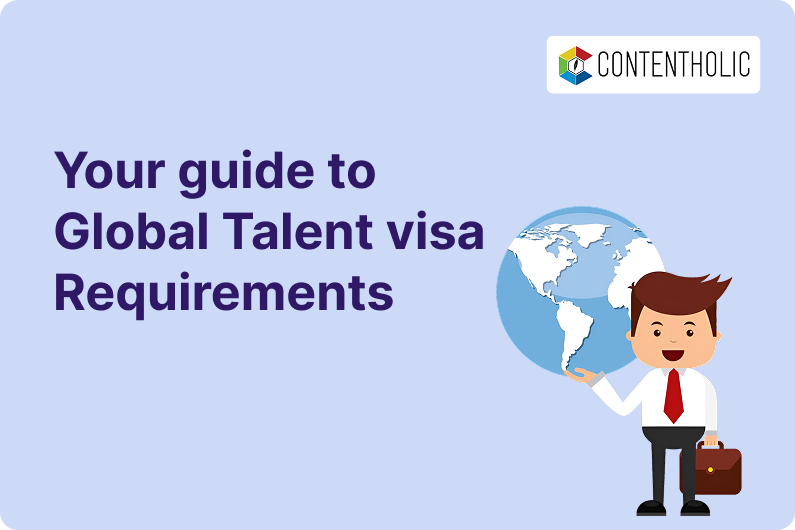South Korea is slowly becoming a dream destination for many students. One of the most important factors behind the country’s popularity among international students is the fascination with its culture, thanks to the global popularity of K-dramas, K-pop, and K-beauty. Additionally, 30% of the lectures in the Korean universities where international students are welcomed are conducted in English. The Korean universities are also known for their high-quality education at affordable fees. Do you also want to explore the Korean culture in addition to getting a world-class education? There is a wonderful opportunity for you in the form of the Global Korean Scholarship (GKS), formerly known as the Korean Government Scholarship Program (KGSP). This is a scholarship started by the South Korean government to invite international students to their country. To apply for the GKS scholarship, you have to submit a personal statement called a GKS study plan along with other documents as requested in the application. If you are wondering how to write this study plan for GKS scholarship, then don’t worry. The study plan GKS form comes with its own format. The only thing you need to do is to answer each of the study plan for GKS questions asked.
This comprehensive blog will walk you through everything you need to know, from how to write study plan for GKS scholarship to providing a GKS study plan sample. We will also discuss how using GKS study plan examples helps and how professional writing services like Contentholic can lead you to success. If you are feeling overwhelmed and confused, Contentholic, as a content development and career counseling agency, can offer you personalized GKS scholarship SOPs, review and edit the drafts written by you, and can also give one-on-one mentorship for study plan for scholarship application.
What is the GKS Scholarship?
Before we get into the SOP for GKS scholarship, let us first understand what is the GKS scholarship. This is a fully funded scholarship by the South Korean government. This scholarship aims to attract international students to pursue undergraduate and postgraduate courses in South Korea and learn about the Korean language and culture. This scholarship covers the full tuition fee, gives a monthly allowance, pays for the airfare, and even gives settlement and language training support. Sounds great, right? But the competition for the GKS scholarship is fierce, and this is where your study plan for scholarship comes into play.
What is Study Plan for Scholarship?
The study plan for Korean scholarship is like a blueprint of your academic journey and future plans for your education in Korea and after. Think of it as your academic roadmap that tells the reviewer what you aim to study, why you want to study in South Korea, and how your study plan aligns with your career goals.
In simpler words, the GKS scholarship study plan wants you to answer why you and why Korea. Although it’s also called a statement of purpose, a personal statement and study plan interchangeably, this study plan is different from the typical SOPs or personal statements, as:
Personal Statement: Personal statements or SOPs focus more on your background, motivations, and achievements.
Study Plan: The study plan focuses more on your academic goals, language preparation, and future aspirations.
The Application Process of the GKS Scholarship
- You can either apply through a designated Korean university or through the Embassy.
- The initial selection is conducted by the embassy or the university.
- If you have applied through the Embassy track, then the University will do the final selection. If you have applied through the University track, then the National Institute for International Education (NIIED) does the final selection.
- Round 1: The candidates are selected based on the NIIED criteria by the university or the embassy.
- Round 2: The NIIED will review the application of the shortlisted candidates.
- Round 3: This round is only for the Embassy track candidates. The universities will review the applications of the candidates selected in Round 2.
If you want to learn more about the Embassy or University track of the GKS scholarship, you can read here.
How To Write A Study Plan for GKS Scholarship?
- Language Study Plan for GKS
In this section, you have to write about your Korean language preparation. It could be that you might not be fluent in Korean, so you have to explain how you are planning to adapt. You can take the help of a language study plan sample and get some ideas about how you can demonstrate your adaptability by mentioning the language program you will participate in, or use online platforms to enhance your language skills.
If you look at some of the language study plan for GKS written by other applicants, you will see that you can also mention the Korean dramas or songs through which you have learned some basic Korean. In this section, you also have to mention how you are going to enhance your language skills as well as your knowledge of life while staying in Korea, such as your goals during the language training program. The scholarship provides a 1-year language training program, and therefore, you have to write about your aims of achieving language proficiency in that 1 year. Take inspiration from study plan GKS graduate examples, or do some of your own research and talk about how you are planning to improve your Korean skills, such as through participating in cultural events, doing voluntary work in schools and colleges, etc. Not only Korean, you will also have to talk about other foreign languages, such as English, and how well-versed you are in them.
- Goal of Study and Detailed Study Plan
Your goal of study should be directly related to the major or course you are applying for. This will show your clarity and focus. Review some of the goal of study and study plan GKS samples to learn how you can divide this section into different phases. For example, you can talk about how in the first year you will go through the language training program (if applicable) in brief, in the next two years you will focus on your coursework and GPA, and in the final year you are planning to do a research, internship, thesis, preparation for employment, or PhD. You can see from the GKS study plan sample PDFs that using timelines makes it more visual and logical.
Take the help of a study plan for GKS scholarship samples to see how you can connect your study plan to Korean education. You have to explain why you have chosen Korea and why the particular universities. Learn from the study plan for GKS samples, and mention the professors, facilities, or research centers that you find appealing.
We have to make it clear that this section can be a little different depending on whether you are applying as an undergraduate, a postgraduate, or applying through the Embassy or University track.
|
GKS Scholarship for Undergraduate |
GKS Scholarship for Postgraduate |
|
The study plan for GKS scholarship undergraduate has a separate section for this part. |
For the study plan for GKS scholarship graduate, this section is combined with the applicant’s plans before coming to Korea. |
- Future Plan After Study
You have to talk about what you are planning after completing your course in Korea. Are you planning to return to your country, contribute to a sector, start your own business; whatever your plans might be, be specific. Review some of the sample of study plan for Korean Government scholarship to see how the applicants have talked about their future goals such as getting a dream job or planning for further studies.
It is recommended by us to review as many personal statement for GKS Scholarship sample PDFs as possible for you to understand the structure and tone, see what successful candidates wrote, and to avoid common mistakes. But remember, never copy from them, use these study plan GKS samples as inspiration, as in the end, your story should be genuine.
Below is the Sample Study Plan for Global Korean Scholarship, South Korea
| Language Study Plan |
Study plans to improve foreign languages(Korean, English,etc.)required for taking a degree course BEFORE and AFTER you come to Korea. |
|
My Interest in the Korean Language began when I was in the 9th grade as I learned how South Korea places significant importance on educating its citizens and also welcomes students from other countries. Beginning my learning through online apps and YouTube videos I not only became familiar with it but also began to admire it. Bowing and showing respect to others is a paradigm that I believe everyone must adopt from the Korean Culture. Influenced by the culture I delved into it more and learned the Korean language through the website ‘www.howtostudykorean.com’ and learned to read Hangeul. I also understood the types of syllable formation and pronunciation. Applications like the Lingo Deer app which supplemented basic sentence structure and grammar, and Hi Native provided answers to my questions given by native writers and speakers brought me closer to perceiving the culture.
Watching the “Talk To Me In Korean” channel furthered this to the extent that I now understand the Korean language and can improvise my pronunciation along with my learning. To add to this, I learned about ‘ sejonghakdang books’ which were introduced by the Korean Cultural Center India (KCCI) that started the “Korean language hobby class”. Post this, it was imperative to join SejongHakdang Institute at KCCI and acquire erudition from the native Korean teachers. I covered Sejong Korean 1 and 2 books and prepared for the TOPIK I exam. Post this beginner level, I got to level 2 in Topik. and also received a scholarship for the Intermediate level at the Sejong Institute. Currently, I am at the intermediate level and learning Sejong Korean 3 book. However, I am aware that I still have a long way to go, although my scores are 198/200 in Topik I intend to clear all 6 levels and gain native-level dexterity which I will get from the GKS program. Before stepping into the class, I will follow by learning 10 new words and making 5 sentences using each word. Making flashcards for the new words along with reading Korean books at the KCCI library and watching dramas and listening to music will enhance not only my dialect but also my listening skills and my pronunciation.
After I reach Korea, I will take the initiative to interact with the natives to augment my conversational skills which are going to be very important for my 5-year stay in Korea for my under graduation. I will participate in cultural activities so I can understand the culture and mingle with the students. As the sincere student that I have been so far, I will continue to follow the instructions of my teachers. Moreover, I plan to achieve Topik level 4 in the first half year of the language training program which will qualify me to undergo the under-graduation course. In the second half, I plan to work hard to get Topik level 5 and 6 as well and I will focus on learning vocabulary/terminologies related to my major which will be the jewel in the crown as I move towards my undergraduate course.
As a student of the Central Board of Secondary Education, the medium of education has been English for all the classes and subjects including math and science. Speaking and writing English will help me understand technical subjects. I will also be able to converse with people in English with a lot of ease as I hold English conversations daily in my country. However, I will continue making efforts to improve the language constantly. I aim to form an English club together with all the other like-minded international friends/students giving us a platform to converse, debate, and follow the learning structure of English proficiency exams like IELTS, TOEFL, etc.
|
The goal of the study & Study Plan |
Goal of study and detailed study Plan |
|
Computer Science Engineering and the programming aspect of it is the most interesting as I get to create applications that ease other’s lives. This interest in coding was kindled when I was in class 10th when to help my sister who was pursuing Computer Science Engineering I glanced at her book. This transcended into deep analysis where I ended up learning the syntax of Python language. With existing knowledge of HTML, and an incessant interest in logical subjects, my curiosity led me to figure out the logic behind the codes, and after that one read I decided that CSE was where I needed to set my foot in.
In class 11th I enrolled in the Introduction to CS in Python course where I studied computer systems and organization, computer networks, computational thinking, and programming in Python. Later, I practiced Python and SQL on various websites. After this, I completed a course in Python and Data Structures from Coursera, at the University of Michigan. I used Datacamp to study Python and SQL and found it helpful for learning and solving queries related to joining data in SQL and explored SQL and Python questions on Hackerrank. The collection of challenges on the Hackerrank website is best suited for me as it helps me to improve my coding skills, especially with the timeout error. These errors helped me in brainstorming to find the most precise and concise codes. It also provided simple and efficient answers in the editorial section to help me find the right and simple code for complex challenges. I have also started learning the C language with the help of YouTube videos and soon plan to understand the objects and classes in the C++ language. I have thoroughly researched the syllabus, and have concluded that C, C++, Java, and Python are the four programming languages that I will be learning along with web programming.
After beginning the language training program, I will tread gradually and in the first half will focus on revising programming languages. I will prioritize in achieving the right TOPIK level. Through socializing and listening to music, watching dramas will inculcate the implementation of my learning naturally. My unifocal goal, in the beginning, is to bridge the language barrier and excel in the Topik Level and associated tests. As I fine-tune myself, I will move further to learn object-oriented programming C++. Having a brief background about this will help me understand the concepts very easily during the university lectures. If given the time, learning discrete mathematics would credit me with thoughtful and analytical learning.
After attaining the required Topik level, I will focus primarily on learning and revising concepts of Computer Science Engineering, whilst maintaining high scores. Even amidst the academics, I will continue making an effort to develop better communication skills by interacting with the peer group from South Korea. I will refrain from splurging and will only focus on my academics, extra-curricular activities, and mingling with my Korean cohort. This will prepare me for my future goals.
South Korean Universities have a wide-ranging curriculum that will supplement my knowledge bank and help me qualify for wonderful employment opportunities. The Computer Science Engineering program is rather comprehensive in the universities I have chosen. After much consideration, and amassing information about the ranks, and prestigious alumni, I have shortlisted these universities. A programming-focused curriculum is the right step to unfold my learning capacity and be professional-ready.
|
Future Plan After Study |
Future plan in Korea or another country after study in Korea |
|
South Korea is a hub from where huge successful brands like Samsung Electronics, LG, Hyundai,etc have stemmed from. Thus, I will look forward to being absorbed by one of these and ascertain my goals. Later, depending on how well I perform in my undergraduate, I will opt for the Master’s in Computer Science from South Korea only. Even then as well I would like to look for scholarship opportunities and after my master’s, I want to work in South Korea for some time and then return to my home country. Upon returning to India, I aim to apply the knowledge and experience gained and share those with my fellow mates and co-workers.
As a student, I aim to work with like-minded cohorts so I can share my knowledge with them and imbibe some from them too. I want to develop a good network between the two countries as I accept inclusivity and enjoy diversity. Moving to South Korea is an indication that with each passing year, the relationship between South Korea and India continues to strengthen. Samsung, the world’s largest factory is being established in Noida, India along with more than 700 South Korean companies that are already established in India reflecting the camaraderie of India and South Korea. This has made India almost the second headquarters of South Korean companies. I believe that the skill set gained from a reputed South Korean university, work experiences, and cultural values that will be incorporated during my long stay in South Korea will help me be a skillful professional and stellar in the fast-paced technical world.
Download PDF
 Download PDF of the Sample Study Plan for Global Korean Scholarship, South Korea
Download PDF of the Sample Study Plan for Global Korean Scholarship, South Korea
Professional Tips to Nail Your GKS Scholarship Study Plan
- Be authentic in your explanations and do not give exaggerated details.
- Before writing, research thoroughly about the language program, course, and universities. You should have good knowledge about the program and professors.
- Use simple language and don’t write overcomplicated sentences.
- It is always a good idea to get feedback on your writing. It could be from a mentor, a senior, or even professional writing services like Contentholic.
- Try to stay within the word limit prescribed in the study plan form, i.e., 3 pages or 1000-2000 words.
- Follow the format requirement. You can either write in Korean or English, it should be single-spaced, use Times New Roman font with size 11.
Final Words
Writing an impressive study plan for GKS scholarship requires both writing skills as well as strategy. We hope that this blog can be of help in your writing process. You can do some quality research and can even get some ideas from GKS study plan samples. Even after all that, if you feel stuck, take help from writing agencies like Contentholic. We have a team of expert and experienced writers who specialize in writing study plans for Korean universities and can help you craft your study plan for GKS with finesse.
Frequently Asked Questions (FAQs)
1. How to write a good study plan for scholarship?
In your study plan, mention your study goals, break the study plan into years, and state what you aim to do in each year while studying in Korea, aligning your plans with the Korean education. You also have to include a study plan for Korean language program and mention your future goals.
2. Can I get a personal statement for GKS scholarship sample PDF?
Yes, you can very easily find a study plan sample for scholarship PDFs online or can even get those through professional writing services websites like Contentholic, who provide study plan sample for scholarship PDF free download option.
3. How long should my GKS study plan be?
Your study plan for GKS scholarship should not be more than 3 pages. It is advisable to stick to the word limit mentioned in the application.
4. Should I write my study plan GKS in Korean?
Yes, you can write your study plan for GKS in Korean if you are confident in your Korean writing skills. Otherwise, you can write the entire study plan for scholarship application in English.
5. What should I avoid in the GKS scholarship study plan?
In your SOP for GKS scholarship, do not give vague answers, unrealistic goals, or irrelevant information, and check for grammatical errors.
6. Do I need to include a language study plan for GKS?
Yes, the language study plan is part of the GKS application form. If you are not fluent in Korean language, you have to mention how you can make yourself better. You can take the help of language study plan samples to learn how to effectively write this section.
7. Can I reuse my SOP from another scholarship?
No, it is not recommended to reuse an SOP from another scholarship. The SOP for GKS scholarship has specific sections, and you need to write your answers accordingly.
8. I’m applying for the GKS scholarship for Graduate, but I don’t know my exact research topic yet. How can I write my study goals then?
It is okay if you don’t know an exact research topic. In your study plan for GKS scholarship graduate, you can just give a clear direction and talk about your area of interest, along with your desired goals to achieve in each year.






